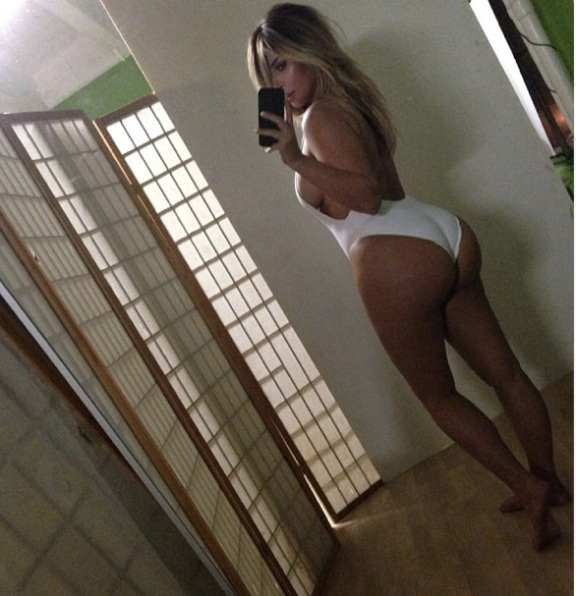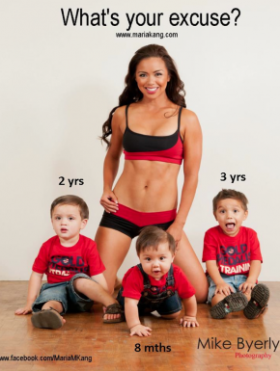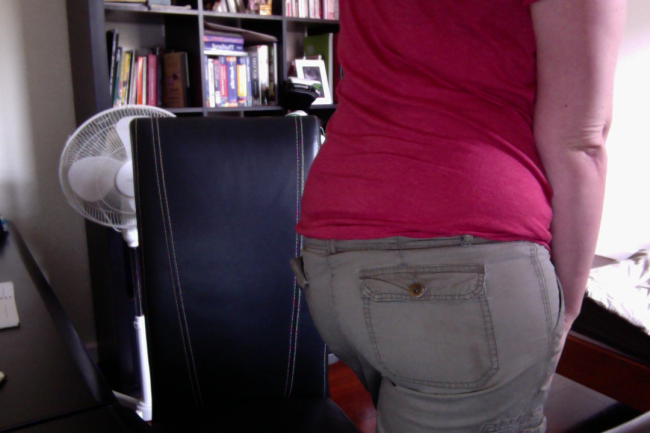As I stumbled into the emergency room my stomach was cramping and I could barely walk. The pain came on suddenly and despite my protests, my partner had insisted that I come. I was in denial but I could hardly speak when the nurse asked me if I was pregnant. “I could be,” I said; “we are trying.” In my heart I had known I was pregnant for a couple of days. I hadn’t wanted to do a test because I thought it may be too soon and we may be disappointed for nothing. The nurse’s face became very serious and I was wheeled in. After drugs, tests and ultrasounds, I was told that I was pregnant and transferred to our city’s women’s hospital. More drugs, more ultrasounds, more tests. I could not understand the debates that were happening around me. I asked questions but through the drugs I barely understood the answers until I met the surgeon. She simply stated “your foetus is dead.” Then the forms, the informed consent and the talk about how I may lose any chance of naturally conceiving more children and as my partner and I have a biological child there would be no government assistance for IVF.
After hours of tests was wheeled into surgery. When I woke my denial was over and I realised I no longer had the pregnancy I wanted so much. I was devastated and I wanted to go sleep, to escape, to curl up into the blackness of my sadness and disappear. I did not want to hear the chatter of the nurses in recovery, I did not even want to hear them telling me to breathe. I felt the nurse shaking me and I muttered “I could not keep him safe, all I had to do was keep him safe.” The shaking got harder as the nurse said, “This is not your fault.” My mind flicked to my son and I took a deep breath. After a while the alarms went quite. This happened twice more before I was wheeled back to the ward and I saw my partner again. I can never truly convey the level of sadness I felt over the next few days.
My mum flew in to support me. Beautiful generous people tried to help. Some stayed away thinking that my family needed space. Some visited saying what they could to try to make it ok. However, in this moment some repeated the platitudes that it was “ok,” I “could have another baby” and that “at least I didn’t have time to bond.” This was a planned and wanted pregnancy. From the moment my partner and I had begun trying to conceive I had changed my diet, I had begun to open boxes of clothes I had stored away from my son and I began to imagine myself with a new baby, possibly a girl but my instinct told me that we would have a little boy.
As a law student and a prochoice mother I have always been sceptical of foetal personhood laws. I have been sceptical on their impact on child birth choices, abortion rights and the treatment of pregnant women with addiction. Intellectually I completely understandthe arguments of Catherine Henry and the NSW Bar Association about the consequences of creating this category of ‘person’. However, a year after hearing those terrible words, I sat in my car transfixed bythe words of that Brodie Donegan had written about the trauma of her loss. The heartbreak of those few days after we had been told flooded back and as my kids slept in the back of the car I quietly cried. As I listened more closely I became more uncomfortable and it’s a discomfort that has only grown since.
In an attempt not to undermine women’s right to choose, the bill named “Zoe’s law” limits its scope to only applying to pregnancies that are more than 20 weeks in gestation. This will enshrine in law one of the most hurtful myths that early pregnancy loss is an ‘easier’ loss. It is not easier to lose a pregnancy early; a wanted pregnancy is never easy to lose. I know that this is not the intention of Brodie Donegan but it is the effect this law would have. 20 weeks is an arbitrary cut-off point. Is the loss of a pregnancy at 20 weeks more hurtful, more terrible or more criminal than one at 19 weeks? I say no. Pregnancy loss at all stages must be treated equally and respectfully by the law. Instead of an arbitrary date or weight of a foetus we must judge the crime that is committed and weigh sentence considerations to reflect this. There will never be a long enough sentence to heal the trauma of a family that loses a wanted pregnancy through a crime. But no mother will accept that her pregnancy loss hurts less because her pregnancy had not reached an arbitrary date. If this law passes it will send the message to women who have lost a pregnancy at under 20 week gestation that the criminal justice system does not take their loss as seriously.
When my partner and I presented to hospital for routine follow up they told me that the test results were not showing what they had expected. I was once again sent for internal ultrasounds with doctors and sonographers gathered around debating. I was told that my pregnancy hormone had not dropped as expected and that they feared my pregnancy had “attached outside my uterus” but they couldn’t confirm it. They sent me away and I returned two days later for the same tests. Only to be sent away grieving and scared I would need more surgery. This process was repeated. After two weeks a consultant explained to me that my original diagnosis was incorrect. I had not lost an 8 weeks old foetus due to ectopic pregnancy but I had other complications. My pregnancy was in fact very early and had held on through the pressure of the internal bleeding and the surgery. The obstetrician was kind and respectful of the trauma I experienced. He said if I did not want to continue with the pregnancy he understood. But this was the pregnancy I wanted and I knew this would be the person who would complete our family.
The next few months were an emotional rollercoaster and I struggled to believe I was truly pregnant. The confidence I had with my first pregnancy that things were ok was gone. Small changes and problems sent me crying to the midwife believing I was again going to be told I had lost him. My son was born in July 2013 with the help of the Community Midwifery Program at King Edward Memorial Hospital. I am more cautious and more scared for him than I ever was for his brother. Sometimes at night when I am feeding, I think back and cry.
I lived with the ‘reality’ of early pregnancy loss for two weeks and it has changed me forever. I cannot imagine living with this reality for the rest of my life. I cannot imagine the anger and hurt felt by a family whose pregnancy was ended by a criminal act. But I ask politicians not to make laws that value one pregnancy over another. Do not make laws that make the violent end of one pregnancy more criminal than another. I ask that everyone does not devalue early pregnancy loss. Do not devalue early pregnancy loss. Do not pass this law.



